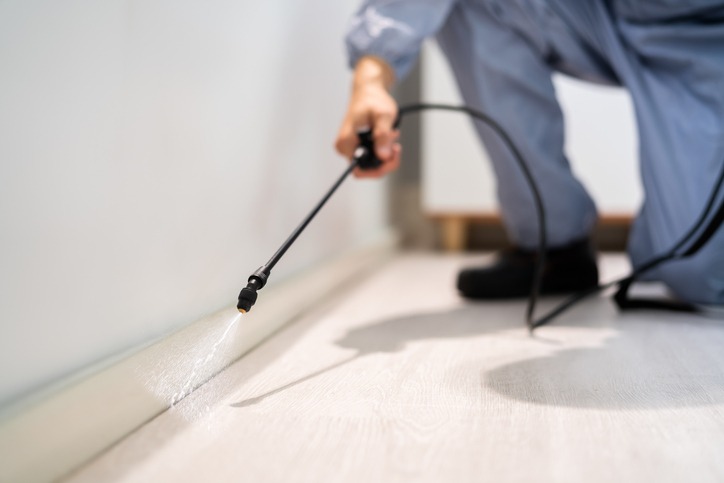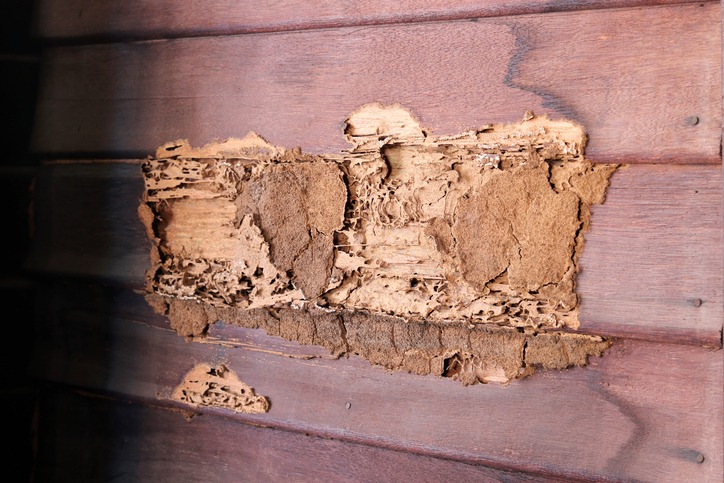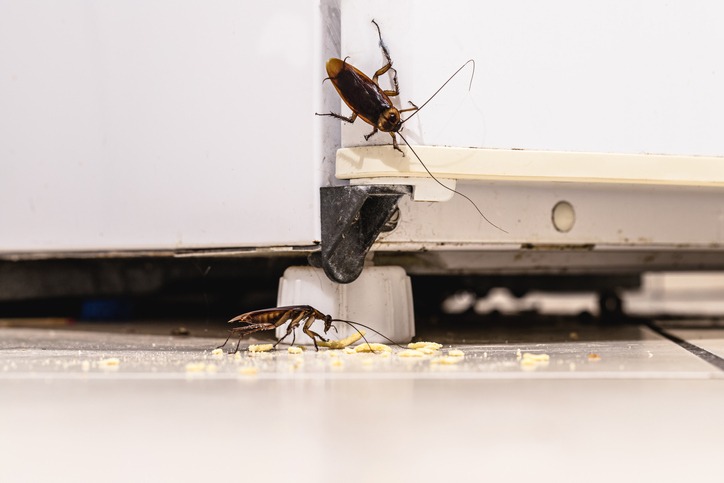Professional pest control services are essential for maintaining a comfortable and safe living environment in residential areas. Homeowners often find themselves facing unwelcome visitors, from ants marching in the kitchen to rodents scurrying in the attic. These intrusions not only cause distress but can also pose significant health risks and property damage. This article is tailored for homeowners and renters who seek to understand the benefits of enlisting professional pest control experts to safeguard their homes. We will explore the comprehensive solutions available, discuss the importance of customized treatment plans, and delve into the advantages of professional intervention over DIY methods. Additionally, we’ll provide guidance on preparing for a pest control visit, ensuring the safety of pets and family members, and maintaining a pest-free environment post-treatment. Whether you’re currently experiencing a pest problem or looking to prevent future infestations, this article will equip you with the knowledge to make informed decisions about protecting your home.
Comprehensive Pest Control Solutions for Homes
When it comes to safeguarding your home from unwanted guests, a robust pest control strategy is essential. Professional pest management goes beyond the occasional pesticide application; it’s about crafting a suite of strategies that are specifically designed to meet the needs of your unique living space. Expert exterminators conduct meticulous inspections to pinpoint the type and severity of infestations, crafting a comprehensive plan that tackles current issues and wards off future intruders. This all-encompassing approach marries chemical, biological, and physical tactics to secure your home against pests. Armed with cutting-edge technology and treatments that are kind to the environment, these services mount a vigilant and forward-thinking defense against a variety of pests, from insects to rodents, safeguarding the health and comfort of your household.
Integrated Pest Management (IPM)
Integrated Pest Management (IPM) stands at the forefront of residential pest control, offering an ecosystem-friendly strategy that focuses on sustainable pest prevention and damage control through a blend of methods, including biological control, habitat alteration, and the use of pest-resistant varieties. IPM is grounded in minimizing risks to humans, property, and the environment.
This methodical approach kicks off with the accurate identification of pests, an understanding of their life cycles, and insights into how these cycles interact with their surroundings. Such knowledge is pivotal for establishing action thresholds—specific points that signal the need for pest management measures.
Professionals then engage in careful monitoring and precise identification of pests, aligning their control strategies with established thresholds. This vigilant approach ensures that pesticides are deployed only when absolutely necessary, and the most suitable form of pest management is selected.
Should pest intervention become essential, IPM practitioners prioritize non-chemical tactics, such as sealing entry points, improving sanitation, and employing mechanical traps. Chemical controls are used as a last resort, applied in a targeted manner to reduce exposure risks. Techniques might include the use of pheromones to interfere with pest mating patterns or the application of biopesticides that are derived from natural sources.
IPM is a dynamic process, not a one-off solution. It involves ongoing assessments, informed decisions, and a spectrum of controls. By regularly monitoring homes for potential pest activity, professionals can prevent infestations before they take hold. This cycle of preventative steps builds a formidable barrier against pests, reducing the need for chemical treatments and thereby lessening the impact on both human health and the environment.
Customized Treatment Plans
Tailoring a pest control strategy to the unique characteristics of each home is a cornerstone of effective pest management. Unlike generic approaches, a customized plan takes into account the specific nature of the infestation, the design of the property, and the lifestyle of its inhabitants, including the presence of children and pets. This personalized strategy ensures a more precise and successful resolution to pest issues.
During the initial visit, pest control experts conduct a comprehensive evaluation of the property to understand the extent of the pest problem. They meticulously search for entry points, nesting areas, and factors that may be attracting pests. This detailed inspection informs the development of a strategy that aligns with the specific requirements of the home.
A bespoke plan might encompass immediate actions to control a severe infestation, as well as preventative measures to deter future issues. It often includes educational advice for residents on how to maintain the effectiveness of the treatment. The chosen tactics will be sensitive to the type of pests involved and will prioritize the safety and well-being of the home’s occupants.
The range of treatments in a personalized plan can be diverse, from mechanical alterations to block pest entry, to the application of eco-friendly pesticides, and the strategic placement of traps. These methods are selected to address the distinct challenges of the pest problem while respecting the homeowner’s preferences regarding treatment methods.
In essence, a customized treatment plan offers a focused and efficient solution to pest control, building upon the broader principles of Integrated Pest Management (IPM) to deliver a strategy that is both effective and considerate of the household’s specific needs.
Advantages of Professional Pest Control
Enlisting the services of a professional pest control company brings a multitude of benefits that surpass the capabilities of DIY efforts. The advantages of such services encompass a broad spectrum of pest management aspects, ensuring that the investment in professional expertise yields substantial returns.
Professionals possess a deep understanding of various pests, their habits, and life cycles, which is crucial for developing effective eradication strategies. This knowledge is particularly beneficial when crafting the kind of customized treatment plans that address specific infestation types.
Access to cutting-edge solutions is another significant perk. Pest control experts have at their disposal an arsenal of advanced tools and treatments not typically available to the average consumer. They apply these state-of-the-art methods to eliminate pests comprehensively from the residence.
In terms of cost, professional services often prove more economical over time. Initial expenses may be higher than store-bought alternatives, but the professional approach targets the infestation at its source, averting repetitive treatments and safeguarding the property from damage.
Efficiency is also a hallmark of professional pest control. Experts can swiftly and effectively resolve pest issues, sparing homeowners the inconvenience and time investment of attempting to tackle the problem on their own. Their prompt response can significantly reduce the disruption to a family’s routine.
Finally, the commitment to ongoing prevention is a testament to the value of professional services. Many companies offer continuous maintenance plans, ensuring that homes remain pest-free well into the future, a concept that aligns with the sustainable strategies discussed in sections on post-treatment care.
In summary, opting for professional pest control services delivers a suite of immediate and long-lasting benefits, fostering a more secure, healthy, and enjoyable living space.
Expertise and Specialized Methods
The proficiency of pest control professionals is rooted in their rigorous training and hands-on experience. They bring a wealth of knowledge about a wide array of pests, understanding not only their identification but also their reproductive habits, life cycles, and preferred environments. This comprehensive insight is critical for both effective elimination and future prevention of infestations.
Equipped with cutting-edge techniques, these experts employ innovative approaches such as thermal remediation to dispatch bed bugs or baiting systems that outperform traditional termite treatments. Their strategic application of treatments ensures precision, avoiding the pitfalls of excessive pesticide use.
Incorporating a holistic IPM strategy, professionals blend chemical and non-chemical treatments with habitat modifications and exclusion methods. They may even introduce natural predators as part of a biological control plan. These integrated tactics are more nuanced than typical over-the-counter solutions, timed to disrupt pests at the most vulnerable points in their life cycle, thereby enhancing the efficacy of interventions and reducing the need for repeated treatments.
Professionals also come equipped with specialized tools and equipment that are not practical for single-use scenarios, such as industrial-grade sprayers and advanced bait stations. When faced with tenacious or health-threatening infestations, the specialized expertise of these professionals is indispensable, transforming a temporary fix into a sustainable resolution.
Health, Safety, and Environmental Considerations
The cornerstone of professional pest control is the unwavering commitment to the well-being of clients and the preservation of the environment. Experts in the field are well-versed in the judicious use of pesticides, ensuring compliance with stringent regulations and safety protocols to safeguard human and animal health, as well as to protect the ecosystem.
Certified and skilled in the meticulous handling of these substances, professionals manage the entire process with utmost care, from secure storage to conscientious disposal and thorough decontamination after application. This meticulous approach mitigates potential exposure risks.
Sensitive to the diverse needs of households, pest control specialists select treatments that are potent against pests yet pose minimal toxicity to residents, especially those most vulnerable such as young children, the elderly, and individuals with health sensitivities.
By embracing the principles of IPM, the reliance on chemical interventions is minimized. Alternatives such as mechanical traps, structural repairs to block pest entry points, and biological control measures are employed, which carry negligible environmental footprints in comparison to traditional pesticides.
Furthermore, responding to the demand for environmentally responsible options, many service providers now offer treatments featuring natural or organic components. These eco-conscious choices are designed to be gentle on the planet while maintaining indoor and outdoor safety, reflecting a shift towards more sustainable pest management solutions.
In essence, professional pest control services are dedicated to delivering results that not only rid homes of unwanted guests but do so with a conscientious approach that upholds the sanctity of the home and the broader environment.
Preparing for a Pest Control Visit
A successful pest control visit hinges on the cooperation between the homeowner and the pest management professionals. As a homeowner, your role is pivotal in setting the stage for an effective treatment. Begin by tidying your living space, focusing on vacuuming, dusting, and decluttering, particularly in areas where pests proliferate, like kitchens and bathrooms. This not only eliminates potential food sources but also unveils hiding spots, allowing technicians to direct their efforts more precisely.
Ensure that storage zones such as basements and attics are orderly, with boxes and items pulled away from the walls, granting access to hidden pest entry points. It’s also prudent to safeguard food items, kitchenware, and utensils from potential exposure to pest control treatments by covering them or storing them securely.
Discuss with your pest control provider beforehand who will handle the shifting of heavy furniture or appliances to ensure clear access for treatment. This pre-arrangement prevents any last-minute misunderstandings.
Outdoor preparations can be just as crucial. Trim any overgrown foliage and secure trash receptacles to assist the technicians in their exterior inspection and treatment efforts. By taking these steps, you create a collaborative atmosphere that is conducive to a thorough and successful pest eradication process, ensuring your home remains a clean and healthy environment.
Home Preparation Steps
To maximize the efficiency of the pest control service, it’s important to take proactive steps within your home. Adhere to any specific instructions from the pest control company, as these are tailored to address your particular pest issue effectively.
Furniture and appliances should be moved away from walls to allow access to the areas pests frequent most. Preemptively vacuuming can help remove pests or eggs, a step that’s especially critical when dealing with infestations like fleas or bed bugs.
Personal effects, from clothes to children’s toys, should be stored to avoid contact with pest control treatments. Electronics and other delicate items ought to be shielded or relocated to protect them from any treatment residues.
In areas like kitchens and bathrooms, clear countertops and empty cabinets if they are included in the treatment scope. Make sure the space beneath sinks is accessible, as these spots are often gateways for pests.
For issues involving pantry pests, such as moths or weevils, it’s beneficial to empty your pantry and seal foodstuffs, aiding both in treatment and in deterring future infestations.
Should the treatment necessitate leaving your home, such as during fumigation, arrange for alternative accommodation in advance. Additionally, heed any advice on post-treatment procedures, like ventilating your home. Your proactive efforts in preparing your home will streamline the pest control process, allowing the professionals to concentrate on eliminating the infestation with minimal interruption to your daily routine.
Pet and Family Safety
The well-being of your loved ones and furry companions is paramount when it comes to pest control treatments. While these solutions are designed to target unwanted critters, they can also present hazards to both people and pets if not handled with care.
To minimize any potential risks, it’s wise to arrange the pest management service for a time when the premises can be temporarily vacated. This precaution is particularly crucial for children, who may be more vulnerable to the effects of pest control agents. Engage in a conversation with your service provider to determine an optimal period for keeping the household away following the treatment, as this duration can differ based on the techniques employed.
For pets, the stakes are high as they often come into direct contact with treated areas. It’s essential to find an alternative location for them during the extermination process. This is especially true for birds, fish, and reptiles, which can be extraordinarily sensitive to aerosols and sprays. Take extra precautions by storing away pet essentials such as bedding, toys, and bowls.
If you have an aquarium, shield it with a waterproof cover and deactivate the filtration system to avert any possible tainting of the water. Communicate with your pest control professional about any animals in your home so they can adjust their approach accordingly.
Be sure to alert the technicians to any allergies or respiratory conditions among household members to enable them to select the most suitable products and application methods.
Finally, always ensure that any pest control materials and tools are kept securely out of reach from curious children and pets. Post-treatment, it’s important to follow the cleaning recommendations provided by the pest management technician to eliminate any lingering residues in areas accessed by your family or pets.
By adhering to these safety measures, you can foster a secure setting for everyone at home while maintaining the effectiveness of the pest eradication efforts.
Post-Treatment Care and Prevention
Sustaining a pest-free home extends well beyond the initial service appointment. As a homeowner, your active participation in post-treatment care and preventive actions is vital to the enduring success of the pest management program.
Following the departure of the pest control professionals, it’s imperative to abide by their directives. These may include timelines for reoccupying your residence, intervals before cleansing treated zones, and indicators of treatment efficacy to observe.
To deter future infestations, it’s critical to tackle the underlying attractants for pests. This could involve routine trash disposal, storing edibles in sealed containers, mending any leaks to cut off water sources, and fortifying your home against entry by sealing crevices and openings.
A consistent cleaning regimen, particularly in food preparation and dining areas, can significantly diminish the likelihood of pests returning. Additionally, keeping your yard well-groomed, including trimming foliage away from your home, acts as a deterrent.
Your pest control plan may include scheduled reassessments or additional treatments, which are essential to identify and manage any new pest activity promptly.
By combining professional pest control services with your own proactive home care, you can create a robust defense against pests, preserving the sanctity and comfort of your living space.
Maintaining a Pest-Free Environment
To ensure your home remains an unwelcoming territory for pests after professional intervention, it’s essential to adopt a proactive approach. Vigilance in cleanliness is key, as pests are drawn to environments where food and water are readily available.
To fortify your home against these unwelcome visitors, consider these strategies:
- Seal edibles away in airtight containers and maintain a spotless area wherever food is handled or consumed, eliminating any traces of food residue.
- Be diligent with waste management by disposing of trash frequently and utilizing bins that are secured with snug lids.
- Tackle any moisture-related issues promptly, including fixing dripping faucets or areas of water accumulation, to deter moisture-loving pests such as silverfish and rodents.
- Regular inspections and upkeep of seals on openings like doors and windows can thwart the entry of opportunistic intruders.
- Periodically examine and declutter spaces that are seldom used, such as storage areas and utility rooms, to prevent pests from settling in undetected.
- Install door sweeps and apply weather stripping to seal off any crevices that could serve as entryways for pests.
- Maintain your home’s exterior by trimming back excessive plant growth, as dense foliage can offer refuge and breeding sites for various pests.
- Stay vigilant for any signs of pest presence, including droppings, nesting materials, or marks of destruction, to address reinfestation risks promptly.
By integrating these practices with the expertise provided by pest control professionals, you can extend the effectiveness of the treatment and significantly reduce the chance of pests returning.
Ongoing Professional Support
Sustained vigilance from a dedicated pest control partner is invaluable in preserving the sanctity of your pest-free home. By forging a bond with a dependable pest management service, you gain immediate access to expert advice and assistance for any post-treatment concerns.
Many pest control firms offer continuous support through routine home inspections, acting as preventative ‘check-ups’ for your domicile’s defenses against pests. These evaluations are instrumental in nipping potential issues in the bud before they burgeon into full-blown invasions.
Consider enrolling in an annual maintenance program, a common offering from pest control services. These scheduled visits are tailored to bolster your home’s defenses, apply treatments that are pertinent to the season, and adapt strategies to counteract new or developing pest threats.
The advantage of a trusted pest control professional extends beyond scheduled visits. They are a reservoir of tailored recommendations, whether it’s for modifying your landscape, advising on structural repairs, or enhancing your home’s barriers against pests.
In the event of sudden pest challenges, your professional ally is equipped to deliver emergency services. Prompt and efficient, these experts provide immediate relief and reassurance in urgent situations.
Ongoing professional support is not just a reactionary measure; it’s a comprehensive approach to prevention, ensuring your living space remains secure and steadfastly resistant to pests.
Useful FAQs for Professional Pest Control Services for Residential Areas
What are professional pest control services for residential areas?
Professional pest control services for residential areas specialize in managing and eliminating pests such as rodents, insects, and other wildlife from homes. These experts apply strategies that prevent future infestations, safeguarding the health of residents and property integrity.
Why should one enlist a professional pest control service instead of attempting DIY solutions?
Professional pest control services have extensive knowledge and access to more effective products than those available to the public. Furthermore, professionals can accurately identify and eliminate pests while ensuring safety standards and preventing future infestations.
What types of pests can professional pest control services handle?
Professionals in pest control services are equipped to handle a vast range of pests. These include but are not constrained to rodents, insects like termites, roaches and bed bugs, spiders, ants, and even wildlife such as raccoons and squirrels.
Are professional pest control services safe for homes with children and pets?
Many professional pest control services offer treatment options that are safe for both children and pets. By adhering to rigorous industry safety standards, these professionals guarantee minimal risk to your loved ones while effectively controlling pest problems.
How often should one schedule professional pest control services?
The frequency of professional pest control services depends on the severity of the infestation and the type of pest. Some pests might require treatment once a year, others could be quarterly, and some severe infestations might even require monthly service.
What are some signs that one might need professional pest control services?
Signs indicating the need for professional pest control services include unusual noises, droppings, chew marks, unexplained damage, or physical sightings of pests. Additionally, allergic reactions or untraceable bite marks may point to a possible pest issue.




